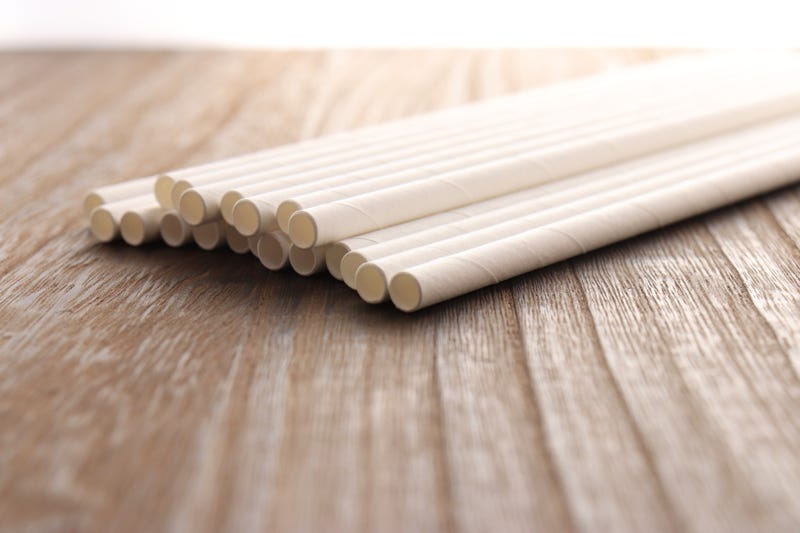
Foregoing plastic drinking straws has become a popular approach to mitigating pollution. However, recent research indicates that some replacements, including paper straws, might be even worse for the environment.
“PFAS were detected in almost all paper-based straws, with highly variable concentrations between brands,” said a study published Thursday in Food Additives and Contaminants Part A.
PFAS – also known as “forever chemicals” – are per- and polyfluoroalkyl Substances. According to the U.S. Environmental Protection Agency, these substances are widely used chemicals with components that break down very slowly over time.
“Scientific studies have shown that exposure to some PFAS in the environment may be linked to harmful health effects in humans and animals,” said the study. These chemicals are also found in the blood of humans and animals all over the world.
As a replacement for plastics, often paper and other plant-based materials are used in commercial settings. This also applies to drinking straws, where plant-based and other presumably eco-friendly straws are increasingly used to reduce plastic pollution.
While plastic straw use does contribute to plastic pollution Jim Leape, co-director of the Stanford Center for Ocean Solutions, said in 2018 they only account for “a tiny fraction of the problem – less than 1%.” Yet, a press release issued this month from market research firm ReportLinker found that the increasing demand for environment friendly alternatives has driven up demand for paper straw papers.
“The Paper Straw Market size is estimated at $1.68 billion in 2023, and is expected to reach $4.53 billion by 2028,” said the press release.
Authors of the recent study explained that, in order to make paper straws water repellent, PFAS are added during the manufacturing process. They also found that PFAS could already be present early in the supply chain due to contaminated raw materials.
“In the present study, we examined the PFAS concentrations in 39 different brands of straws, made from five materials (i.e. paper, bamboo, glass, stainless steel, and plastic) commercially available on the Belgian market,” the researchers said. “We combined both targeted and suspect-screening approaches to evaluate a wide range of PFAS. PFAS were found to be present in almost all types of straws, except for those made of stainless steel.”
In fact, “PFAS were more frequently detected in plant-based materials, such as paper and bamboo,” they said. This indicates that these straws are not necessarily biodegradable and that their use contributes to PFAS exposure in humans.
Even back in 2018, Leape was concerned that the straw issue would “confer ‘moral license’ – allowing companies and their customers to feel they have done their part,” while more work needs to be done to address pollution.
For those who want to use straws and avoid polluting the Earth with PFAS, researchers said stainless steel appears to be the way to go, as they are reusable, do not contain PFAS, and can be fully recycled. Still, consumers should be aware of lead contamination related to stainless steel products, as well as other hazards.
Craig Criddle, a professor of civil and environmental engineering who spoke with the Stanford Report in 2018, said that “many microorganisms make moldable bioplastic polymers that are fully degradable,” that could potentially be used as a replacement for non-degradable plastic. Research into bioplastics continues today, including work at Michigan State University.
Authors of the recent study said more research into PFAS contamination in food and drink is needed, as well as research into the potential human health risks associated with food contact materials that contain PFAS.


